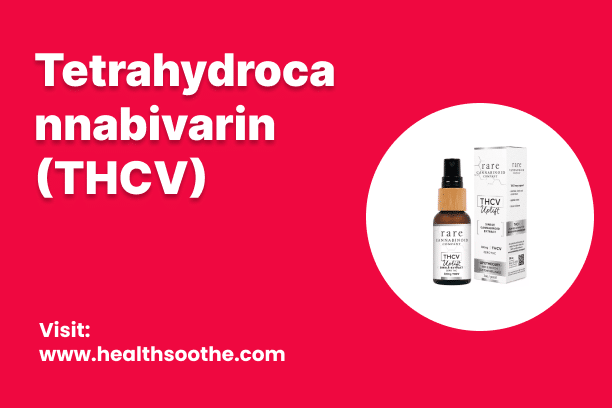Prekese is a tropical plant native to West Africa, known for its numerous health benefits. The plant's scientific name is Tetrapleura tetraptera, and it's commonly called an African locust bean or Guinea pepper. Prekese has a unique aroma and a slightly bitter taste that's often described as similar to that of spice cloves.
Prekese has been used for centuries as a traditional remedy for various ailments in West African countries such as Nigeria, Ghana, and Sierra Leone. In recent years, the plant's popularity has increased globally as researchers continue to discover its many health benefits.
Read Also: Top 10 best African restaurants in the United Kingdom
Here are some of the most notable benefits of prekese:
1. Manage Diabetes
Tetrapleura tetraptera is effective in treating Type 2 diabetes mellitus, according to mouse research. Prekese fruit extract is thought to reduce blood sugar levels both during and after fasting.
2. Encourages Loss of Weight
You may quickly lose weight by drinking prekese tea since the prekese beverage can flush off excess body fat.
3. Management of Digestive Disorders:
Since the plant contains phytochemicals, it may treat gastrointestinal conditions including vomiting, diarrhoea, and stomach discomfort.
4. Fever:
When one has a cold, prekese is a fantastic treatment. Soaking the plant in warm water is the best method for using it. Use the infused water to take a bath. This is supposed to significantly lower body temperature and fever. You may also attempt this treatment if you have emetic, constipation, or enema.
5. hypertension
The plant's stem and bark may be used to treat high blood pressure. According to studies, the plant helps lower high blood pressure and lower patients' levels of oxidative stress.
6. Functions as an insect repellent:
The plant has a strong scent, which makes it effective in keeping mosquitoes away. The essential oils found in prekese are thought to be responsible for their effects.
7. Postpartum Care: To stop contractions, postpartum moms should be given the plant pod as an adjunct to the soup. It is said that the pods are rich in potassium, calcium, and iron. According to some, these three elements are crucial for postpartum mothers. According to legend, prekese soup restores lost blood and helps nursing women produce milk.
8. Convulsion management:
In traditional medicine, the stem, fruit, and leaves of the prekese are used to make herbal brews. This may aid convulsion management. According to studies, the plant's aqueous extract has central nervous system effects and anticonvulsant properties.
9. Remedies Leprosy
The research found that the arid plant is also utilised to cure leprosy. As a result of the disease's severe impact on the skin, mucous membranes, and nerves, lumps and skin blemishes develop. Mutilation and deformities may also result from leprosy instances that are more severe.
10. Anti-inflammation Qualities
Anti-inflammatory compounds found in plant extracts have an effect on a number of human diseases. This may result in a reduction in rheumatoid arthritis, arthritic pain, and bodily inflammation.
Nutritional content lists them
Prekese is a highly nutritious plant that is rich in various vitamins, minerals, and phytochemicals. Here is a list of the nutritional content of prekese:
- Protein: Prekese is a good source of protein, containing up to 19% protein by weight.
- Carbohydrates: Prekese is rich in carbohydrates, with up to 50% of its weight coming from carbohydrates.
- Dietary fibre: Prekese is an excellent source of dietary fibre, with up to 28% of its weight consisting of fibre.
- Vitamins: Prekese is rich in vitamins, including vitamin C, vitamin A, thiamin (vitamin B1), riboflavin (vitamin B2), and niacin (vitamin B3).
- Minerals: Prekese is a good source of minerals, including calcium, iron, phosphorus, potassium, sodium, and magnesium.
- Phytochemicals: Prekese contains various phytochemicals, including flavonoids, tannins, and alkaloids, which are responsible for many of its health benefits.
Overall, prekese is a highly nutritious plant that can help meet the body's daily requirements for protein, carbohydrates, fibre, vitamins, and minerals.
Ways on how to prepare prekese
Prekese, also known as African locust bean or dawadawa, is a popular spice used in West African cuisine. It is commonly used in soups, stews, and sauces to add a unique flavour and aroma to the dish. Here are some ways how to prepare prekese:
- Grind the prekese: You can grind the prekese into a fine powder using a spice grinder or mortar and pestle. This makes it easier to use in recipes that require a powdered form of the spice.
- Slice the prekese: You can also slice the prekese into smaller pieces using a sharp knife. This makes it easier to add to soups and stews, and the flavour will infuse into the dish as it cooks.
- Boil the prekese: Boiling prekese is another way to prepare it. Simply place the prekese in a pot of water and boil for about 15-20 minutes until it softens. You can then strain the liquid and use it as a base for soups and stews.
- Roast the prekese: Roasting prekese is another option. Place the prekese on a baking sheet and roast in the oven for about 10-15 minutes until it turns brown. This will enhance its flavour and make it easier to grind or slice.
No matter how you prepare prekese, be sure to use it in moderation as it has a strong flavour and can easily overpower a dish
The downside of excessive prekese
There are a few potential downsides to consider when using prekese:
- Allergic reactions: Some people may be allergic to prekese, which can cause allergic reactions such as itching, swelling, or difficulty breathing. If you have never tried prekese before, it's a good idea to start with a small amount to test for any allergic reactions.
- Strong flavour: Prekese has a strong and distinctive flavour that may not be enjoyed by everyone. If you are new to using prekese, it's best to start with small amounts and gradually increase as you become accustomed to the flavour.
- Excessive consumption: Eating too much prekese can cause stomach upset or diarrhoea. It's important to use prekese in moderation and not to overdo it.
- Contamination: Prekese is often harvested and stored under unsanitary conditions, which can lead to contamination with harmful bacteria. It's important to source prekese from reputable suppliers and to thoroughly wash and prepare it before using it in recipes.
Overall, prekese can be a healthy and flavorful addition to many dishes when used in moderation and prepared properly. However, as with any food, it's important to be aware of the potential downsides and to use it in a safe and responsible manner
Conclusion
Prekese is a powerful plant with numerous health benefits. Its anti-inflammatory, antioxidant, and immune-boosting properties make it a potentially useful remedy for various health problems.
While prekese is generally considered safe for consumption, it's always advisable to consult a healthcare professional before using any new herbal remedies.
Benefits of Prekese
Q1: What is Prekese?
A1: Prekese, also known as Tetrapleura tetraptera or Aidan fruit, is a tropical plant native to West Africa. The fruit, bark, and leaves of this plant have been traditionally used for medicinal purposes, and are highly valued for their numerous health benefits.
Q2: What are some of the health benefits of Prekese?
A2: Prekese is known for its numerous health benefits, which include anti-inflammatory, antimicrobial, antioxidant, anti-diabetic, and anti-cancer properties. It may help boost the immune system, support weight loss, regulate blood sugar, improve heart health, and promote digestion.
Q3: How can Prekese be used for weight loss?
A3: Prekese is believed to help with weight loss due to its high fiber content and appetite-suppressing properties. It may help improve digestion, reduce food cravings, and enhance satiety, which can lead to reduced calorie intake and weight loss over time.
Q4: Can Prekese help manage diabetes?
A4: Prekese has been reported to possess anti-diabetic properties, making it potentially helpful for managing blood sugar levels in individuals with diabetes. It may aid in regulating glucose metabolism and improve insulin sensitivity, although further research is needed to confirm these effects.
Q5: How does Prekese support heart health?
A5: Prekese contains bioactive compounds that have been associated with improved heart health. It may help reduce blood pressure, lower cholesterol levels, and prevent the formation of blood clots, reducing the risk of heart disease and stroke.
Q6: What are the potential anti-cancer properties of Prekese?
A6: Prekese contains phytochemicals that may exhibit anti-cancer properties. Some studies suggest that these compounds can inhibit the growth of cancer cells and induce apoptosis (cell death), but more research is needed to fully understand its potential role in cancer prevention and treatment.
Q7: How can Prekese be used in cooking?
A7: Prekese can be used as a spice or flavoring agent in a variety of dishes, including soups, stews, and sauces. Its unique taste adds a distinct flavor profile to meals, while also providing health benefits. The dried fruit or powdered form is often used in traditional West African cuisine.
Q8: Are there any side effects or precautions to consider when using Prekese?
A8: Prekese is generally considered safe for consumption when used in moderation. However, as with any natural remedy or supplement, it is recommended to consult a healthcare professional before incorporating it into your diet, especially if you are pregnant, breastfeeding, or taking medications.
Q9: Where can I find Prekese?
A9: Prekese can be found in African grocery stores, specialty food stores, or online. It is typically available in dried or powdered form and may also be found as an ingredient in some herbal teas and supplements.
Q10: Can I grow Prekese at home?
A10: Growing Prekese requires specific conditions, such as a tropical or subtropical climate. If you live in an area with the appropriate climate, you may be able to cultivate the plant. However, it might be more practical to purchase Prekese from a local store or online retailer.







